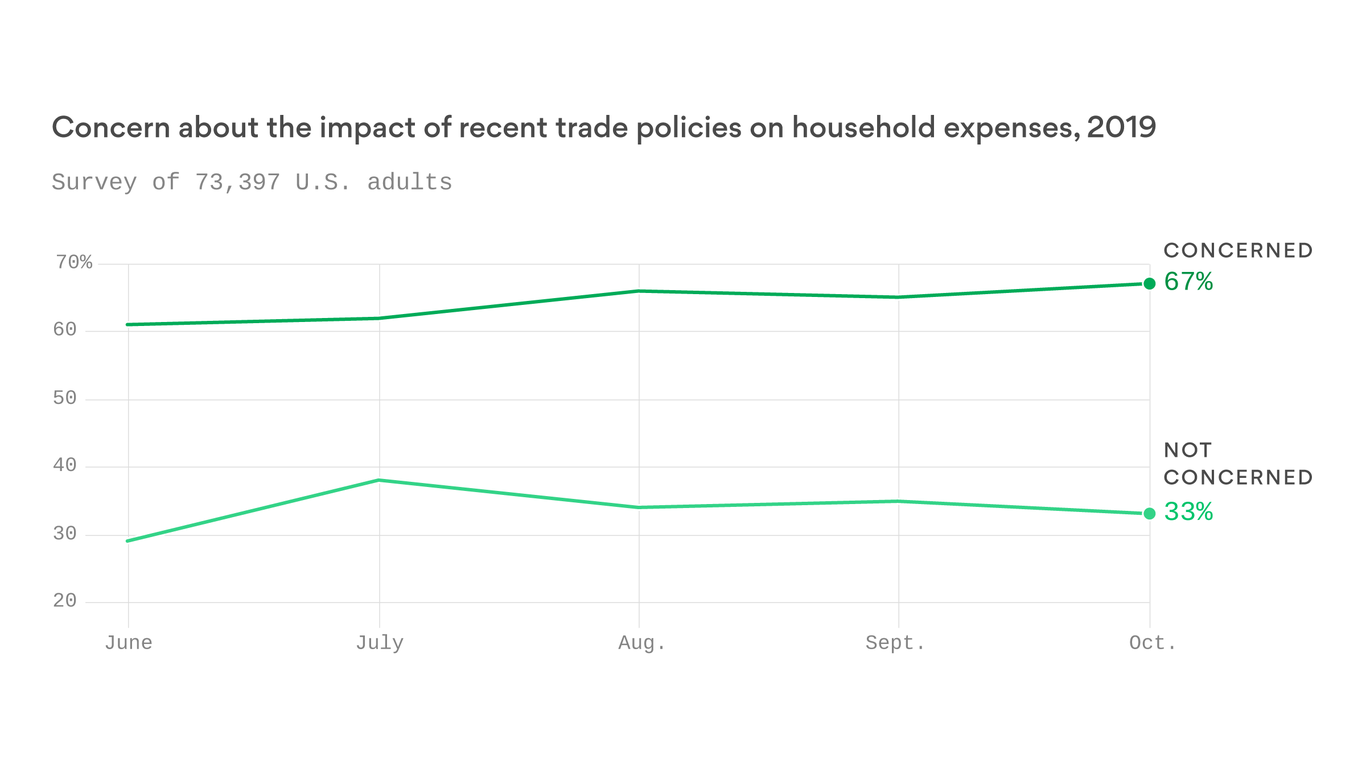China's Economy And The Rising Risk Of Tariff Wars

Table of Contents
Understanding China's Economic Powerhouse
China's rise as a global economic force is undeniable. Its influence on global trade and manufacturing is profound, making it a key player in the international economic system.
China's Global Trade Dominance
China's role in global manufacturing and exports is paramount. It's a leading exporter in numerous sectors, significantly impacting global supply chains.
- Key export sectors: Electronics, textiles, machinery, and toys are just a few examples of the vast range of goods exported from China. This diversity contributes significantly to its economic strength.
- Trade relationships with major economies: China maintains extensive trade relationships with the US, the EU, and numerous other countries across the globe. The Belt and Road Initiative further strengthens its global economic reach.
- Impact of the Belt and Road Initiative: This ambitious infrastructure project aims to connect Asia, Africa, and Europe, enhancing trade and investment opportunities for China and its partners. However, it has also drawn criticism for debt sustainability issues in participating nations.
These factors solidify China's position as a dominant player in global trade, impacting the economies of numerous nations directly and indirectly. Understanding the intricacies of Chinese exports and global trade is crucial to comprehending the broader implications of tariff wars.
Internal Economic Challenges
Despite its global dominance, China faces significant internal economic challenges. These vulnerabilities can exacerbate the impact of external trade pressures.
- Debt levels: High levels of corporate and government debt pose a significant risk to financial stability. A sudden downturn could have cascading effects throughout the economy.
- Property market risks: The Chinese real estate market, a major driver of economic growth, has shown signs of instability, raising concerns about potential bubbles and subsequent corrections.
- Demographic shifts: China's rapidly aging population and declining birth rate present challenges to its long-term economic growth potential and labor supply.
- Technological dependence: While China is investing heavily in technological innovation, its reliance on foreign technology in certain key sectors remains a vulnerability.
Addressing these internal economic challenges is critical for China to effectively navigate the uncertainties of an increasingly protectionist global trade environment. Analyzing Chinese debt, the real estate market China, demographic challenges China, and technological innovation China are all key to understanding its resilience.
The Escalation of Tariff Wars: Impacts on China's Economy
The imposition of tariffs, particularly the US-China trade war, has significantly impacted China's economy. However, the challenges extend beyond bilateral disputes.
The US-China Trade War and its Aftermath
The US-China trade war, characterized by tit-for-tat tariff increases, had significant short-term and long-term consequences for Chinese industries.
- Specific tariffs imposed: Tariffs were imposed on a wide range of goods, from agricultural products to manufactured goods. These measures disrupted supply chains and increased the cost of goods.
- Retaliatory measures: China implemented retaliatory tariffs, further escalating the conflict and impacting US businesses.
- Short-term and long-term consequences for Chinese industries: While some industries adapted, others faced considerable hardship, leading to job losses and decreased investment in affected sectors.
Understanding the specific tariffs on Chinese goods and the trade sanctions imposed is essential for assessing the impact of this conflict.
Beyond the US: Multi-lateral Trade Tensions
Trade tensions involving China extend far beyond its relationship with the US. Multi-lateral conflicts further complicate the economic landscape.
- China-EU trade: The EU and China have a complex trade relationship, marked by both cooperation and competition. Trade disputes occasionally arise, adding further complexity to the situation.
- Tensions with other Asian economies: China's growing economic influence has led to tensions with some neighboring countries, creating trade friction.
- WTO disputes: China's trade practices have been the subject of several disputes within the World Trade Organization (WTO), adding another layer of complexity to its international trade relations.
Analyzing China-EU trade, Asia-Pacific trade, and the role of the World Trade Organization is crucial to gain a comprehensive understanding of the broader trade environment.
Mitigating the Risks: Strategies for Navigating Tariff Wars
Both China and other nations are adopting strategies to mitigate the risks associated with tariff wars.
China's Response Mechanisms
China has implemented several strategies to counter the impact of trade restrictions.
- Investment in domestic industries: China is actively promoting investment in domestic industries to reduce its reliance on foreign supply chains.
- Diversification of trade partners: China is actively seeking to diversify its trade partnerships, reducing its dependence on any single market.
- Promotion of technological self-reliance: Massive investment in research and development aims to enhance technological self-sufficiency and reduce reliance on foreign technologies.
Understanding China's economic policy, focusing on trade diversification and technological self-sufficiency, is critical to predicting its future economic trajectory.
Global Implications and Strategies for Other Nations
The impact of tariff wars is global, requiring responses from nations worldwide.
- Supply chain resilience: Countries are focusing on strengthening supply chain resilience and diversification to reduce vulnerability to trade disruptions.
- Trade agreements: Negotiating new trade agreements and strengthening existing ones can help mitigate the negative impacts of protectionist measures.
- Investment diversification: Diversifying investments across different countries and regions can reduce overall risk.
Addressing global supply chain disruptions and participating in international trade agreements are crucial strategies for navigating this volatile environment.
Conclusion: Understanding the Future of China's Economy in a World of Tariff Wars
China's economy, while a global powerhouse, faces significant internal vulnerabilities and external pressures from escalating tariff wars. The risks associated with continued trade conflicts are substantial and could trigger unforeseen economic consequences. While China is implementing strategies to mitigate these risks, the future economic landscape remains uncertain. Understanding the interplay between China's economic strengths and weaknesses, coupled with the ongoing dynamics of global trade policy, is crucial for informed decision-making. Stay informed about developments in China's economy and tariff wars, and seek professional advice to navigate the complexities of international trade. Understanding the nuances of China's economy and tariff wars is crucial for navigating the increasingly complex global economic landscape.

Featured Posts
-
 Hollywood Shutdown Writers And Actors On Strike Impacting Film And Tv
Apr 22, 2025
Hollywood Shutdown Writers And Actors On Strike Impacting Film And Tv
Apr 22, 2025 -
 White House Cocaine Investigation Secret Service Announces Findings
Apr 22, 2025
White House Cocaine Investigation Secret Service Announces Findings
Apr 22, 2025 -
 Over The Counter Birth Control A Post Roe Game Changer
Apr 22, 2025
Over The Counter Birth Control A Post Roe Game Changer
Apr 22, 2025 -
 Ohio Train Derailment The Prolonged Presence Of Toxic Chemicals In Buildings
Apr 22, 2025
Ohio Train Derailment The Prolonged Presence Of Toxic Chemicals In Buildings
Apr 22, 2025 -
 Conclave 2023 A Critical Examination Of Pope Franciss Papacy
Apr 22, 2025
Conclave 2023 A Critical Examination Of Pope Franciss Papacy
Apr 22, 2025
